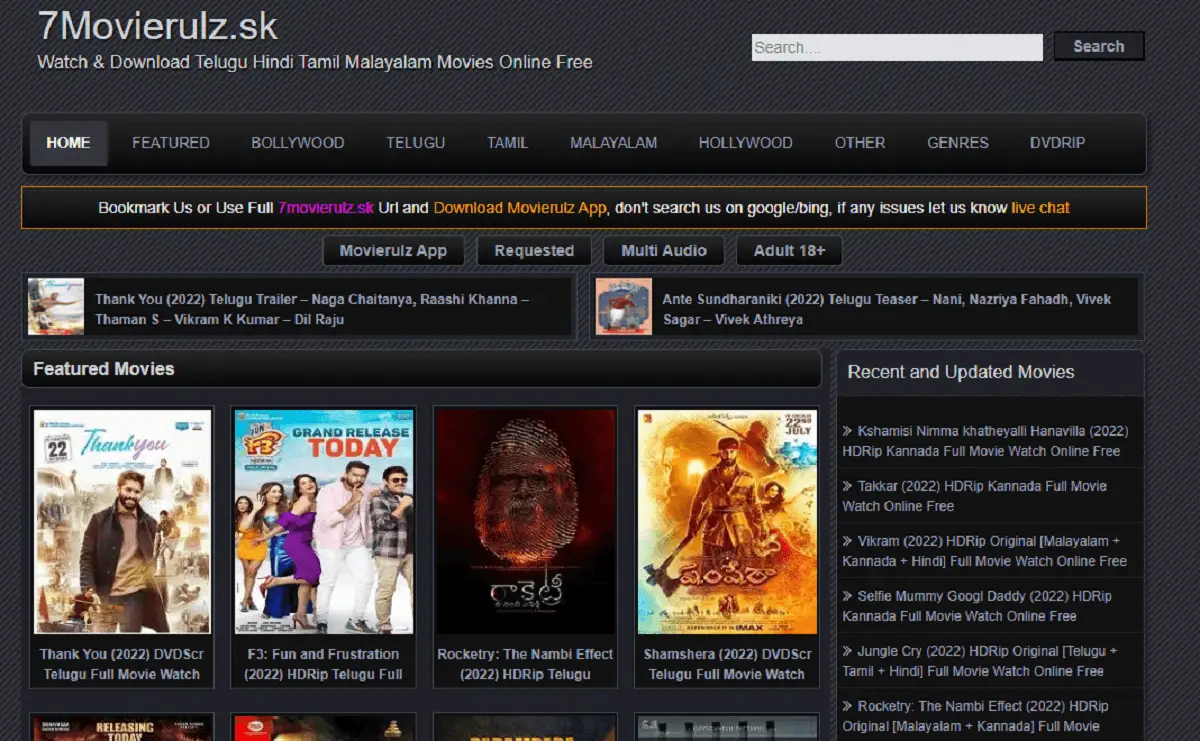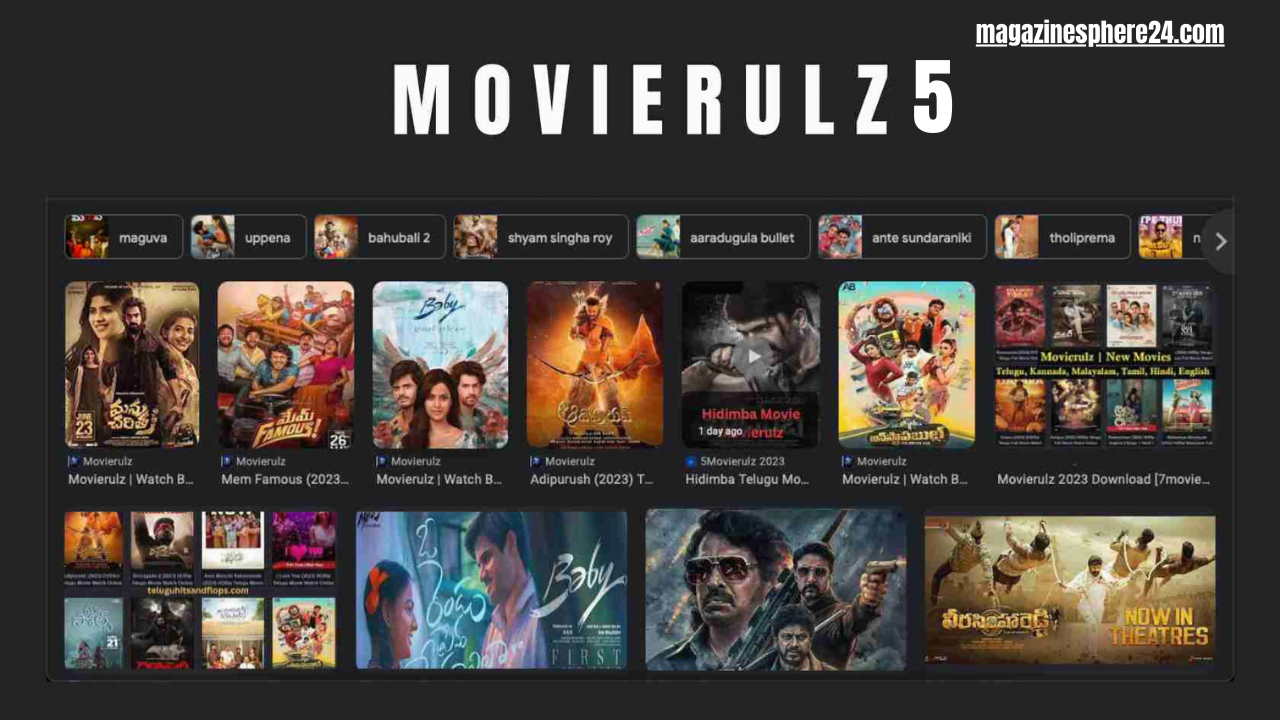Finding Info On Telugu Movies & Movierulz In 2025? Here's The Scoop!
Is the allure of instant entertainment truly worth the potential price, and what are the ethical and legal implications of accessing content through unofficial channels? The digital landscape is a minefield of both readily available content and the ever-present threat of illegal activities, and the choices we make shape the future of creative industries.
The information age has irrevocably altered the way we consume media, making entertainment accessible at an unprecedented scale. This ease of access, however, has also created a parallel ecosystem of websites and platforms that operate outside the boundaries of copyright law. These platforms often offer the latest movies, television series, and other forms of content for free, a tempting proposition for many. Yet, the question of legality and ethics remains at the forefront. Websites, such as the one referred to as "Movierulz," are often highlighted in discussions about online piracy. They are known for offering a vast library of content, encompassing movies from Bollywood, Tamil, Telugu, Hollywood, and Punjabi cinemas. The availability of these films, often in high-definition quality, is a significant draw for users, making it an attractive option for those seeking entertainment without incurring costs. However, the fundamental issue of unauthorized distribution casts a long shadow over this accessibility. The creators, actors, and all those involved in the production of such content are deprived of their due compensation, as these platforms bypass legitimate distribution channels. The proliferation of such platforms underscores the critical importance of understanding the legal and ethical implications of media consumption.
| Website Name | Movierulz |
| Primary Function | Offering access to pirated movies and TV shows |
| Content Types | Telugu, Tamil, Hindi, Malayalam, Kannada, Bollywood, Hollywood, Punjabi movies, web series, and Kdramas |
| Operation | Utilizes illegal means to make copyrighted content available for free download and streaming |
| Legality | Operates in violation of copyright laws, making its activities illegal in most jurisdictions |
| Target Audience | Individuals seeking free access to movies and TV shows, often without regard for copyright or ethical considerations |
| Revenue Model | Primarily relies on advertising, which often includes intrusive and potentially harmful ads |
| Risk to Users | Potential exposure to malware, viruses, and legal repercussions for downloading copyrighted content |
| Availability | Operates through various domains, often using proxy servers and mirror sites to circumvent blocking and maintain accessibility |
| Alternatives | Legitimate streaming services such as Netflix, Amazon Prime Video, Hulu, and others |
| Ethical Considerations | Deprives creators of revenue and undermines the sustainability of the film and television industries |
| Consequences of Use | Supports illegal activities, potentially exposing users to legal risks and digital security threats |
The allure of instant entertainment is deeply embedded in the user experience, a reality carefully crafted by the very platforms that offer these services. The user interface is generally designed to be as accessible as possible. Often the websites are tailored to streamline the browsing process. Despite their apparent utility, it is vital to dissect the consequences of utilizing these platforms and the ethical implications that come with accessing content through unofficial channels. The digital age has made entertainment accessible at a scale never before seen, yet it has also ushered in a wave of piracy, impacting creators and the industry as a whole.
When one searches for "Movierulz," one enters a realm where the latest films and television series are made available, often at no cost. It becomes easy to find content from a wide array of industries, including Bollywood, Tamil, Telugu, Hollywood, and Punjabi cinema. A user can easily find content, and this may tempt the casual viewer. However, the issue of copyright is at the very heart of this system. The creators, the actors, and all involved in the production of such content are deprived of their due compensation. The platforms bypass official distribution channels.
The film industry, particularly the Telugu film industry, is currently in a state of dynamic evolution. Many directors are finding their voice and moving forward, establishing their unique identities. This evolution brings forth anticipation for new releases and the top-rated movies of 2025. It is within this creative landscape that the issue of piracy becomes especially critical. The illegal distribution of content threatens the very survival of the creative ecosystem.
Looking ahead to 2025, there is a particular film that is drawing attention: a story of a young heir. This upcoming film, directed by Maruthi Dasari and starring Prabhas, Nidhhi Agerwal, and Sanjay Dutt, promises to delve into themes of royalty, rebellion, and the establishment of new rules. But even the excitement surrounding such a project is intertwined with the concerns of illegal distribution. The availability of such films on platforms such as Movierulz could undermine the financial success of the films, thus affecting future projects. It emphasizes the need for ethical engagement in the consumption of media.
The reality of piracy websites lies not only in their accessibility but also in their methods of operation. These platforms use proxy servers and mirror sites. These sites allow them to bypass censorship and geographical restrictions, and this aids in maintaining the supply of content. This creates a cat-and-mouse dynamic. It is a struggle between the platform owners and the authorities attempting to curb their operations. The use of proxies and mirrors allows these sites to persist despite constant efforts to block them.
There are legitimate channels for accessing entertainment, including streaming services, that offer a vast library of content while adhering to copyright laws. Streaming services provide options that respect the rights of creators. There is also the legal safety aspect: they do not expose users to the risks associated with malicious software or legal repercussions.
One must also consider the user experience: the ease with which users can find content. It is tempting, but the price is ultimately too high. The availability of pirated content, however attractive, is a threat to the creative industries. Therefore, consumers are encouraged to consider the ethics and legality of their choices in accessing media.
The issue of online piracy requires a comprehensive strategy to mitigate its effects, incorporating both technical and ethical measures. Legal actions play an important role, including the enforcement of copyright laws and the prosecution of those who engage in illegal distribution. These measures aim at preventing the creation and distribution of pirated content, while protecting the rights of content creators. There is also the challenge of educating the public about the legal and ethical issues surrounding content piracy. It is important to raise awareness of the harm done to the creative industries.
The rapid change in the media landscape brings forth both possibilities and concerns. It requires a constant evaluation of our choices and their impact on the creative ecosystem. By supporting legal methods of accessing content and understanding the negative impact of piracy, we can help ensure the sustainability of the entertainment industry. The choice of where and how we consume content is ultimately the responsibility of each user. It is the responsibility to support creativity and protect the rights of those who create the content we enjoy.
The future of entertainment depends on a balance between accessibility and ethics. It is important to recognize that entertainment has a cost, not just for the content creators, but also for the users who seek to watch films in a safe environment. Platforms such as "Movierulz" are built on the unauthorized distribution of copyrighted content, and one should be wary of them.
The digital world is full of options for entertainment, but there are choices we have to make, and those choices matter. It is a crucial responsibility to choose the ethical and legal paths. These options not only protect the creative ecosystem but also ensure a future where the best of cinema can continue to thrive. The future of film and television is in the hands of those who value creativity, and act on it.
The year 2025 promises a vibrant period in Telugu cinema, with a series of new releases anticipated. But it is not only about the movies themselves; it is also about supporting the process and the people behind the productions. With the ethical choices we make, we can ensure the vibrancy and innovation of the industry for years to come.


